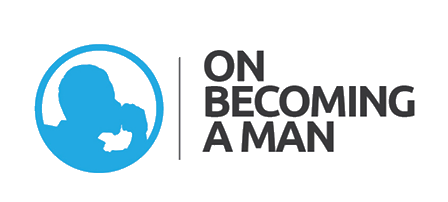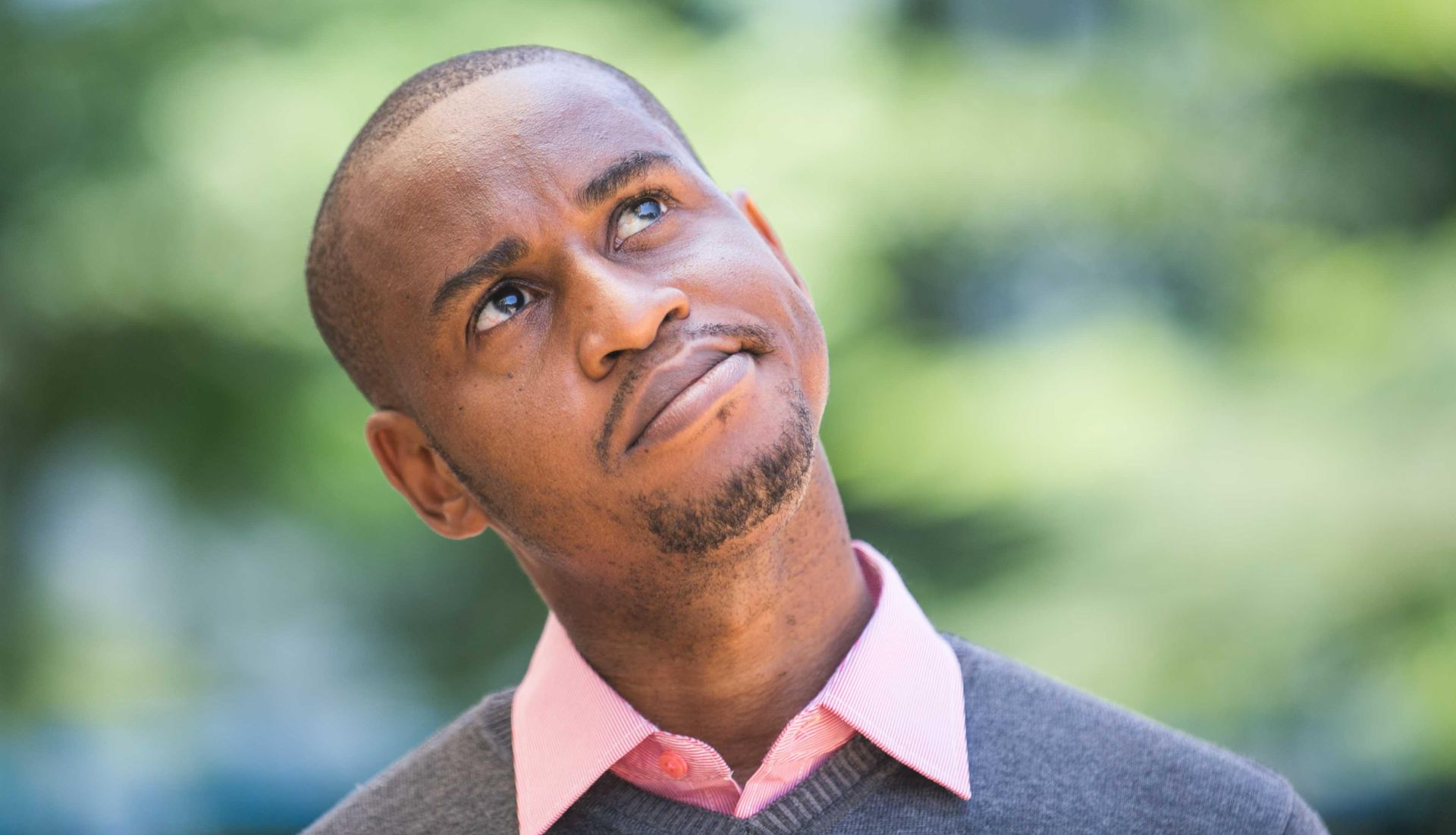1.1K
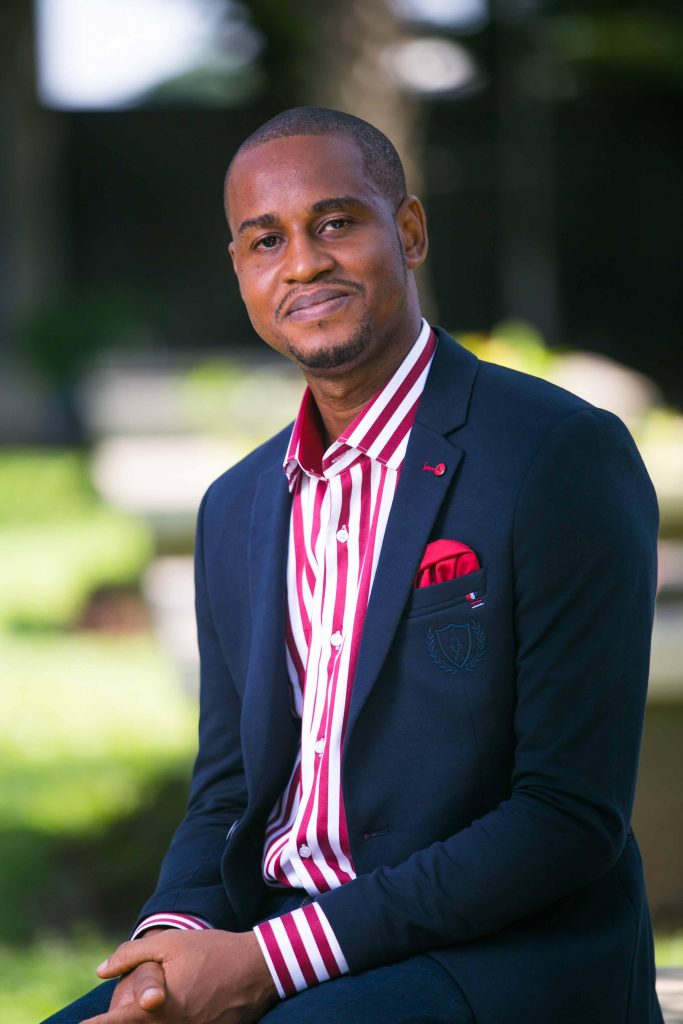 What informed you choice of career, and how would you describe your professional experience so far – any significant decisions, accomplishments, challenges you overcame?
What informed you choice of career, and how would you describe your professional experience so far – any significant decisions, accomplishments, challenges you overcame?
 What is the role of faith in mental health issues and how do you apply it in your work/ Are there any particular wrong notions or lines that shouldn’t be crossed when trying to apply faith in treating/managing mental health issues?
What is the role of faith in mental health issues and how do you apply it in your work/ Are there any particular wrong notions or lines that shouldn’t be crossed when trying to apply faith in treating/managing mental health issues?
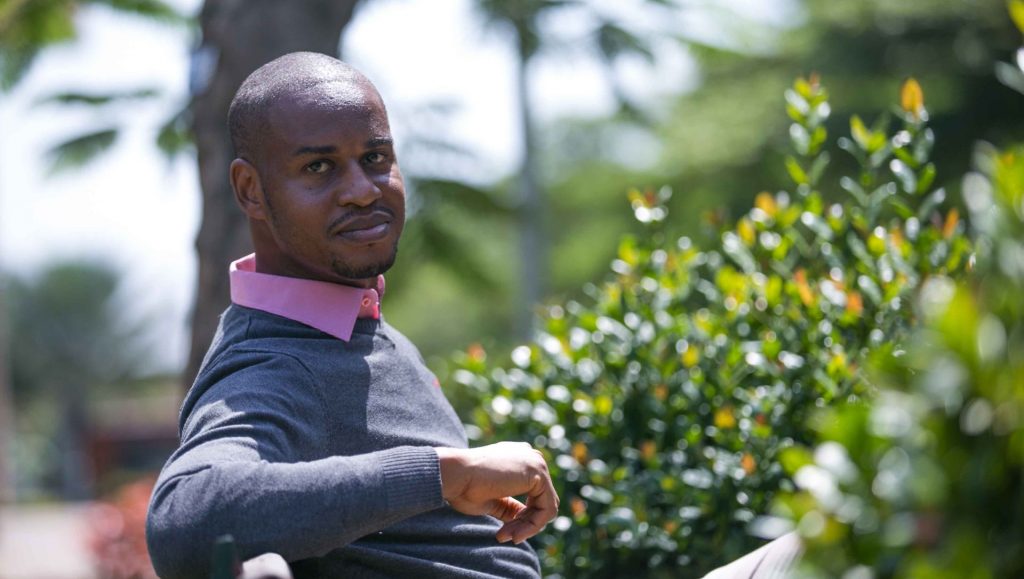 What are your thoughts about the roles of a man as a Prophet, a Priest, and a King over his family?
What are your thoughts about the roles of a man as a Prophet, a Priest, and a King over his family?
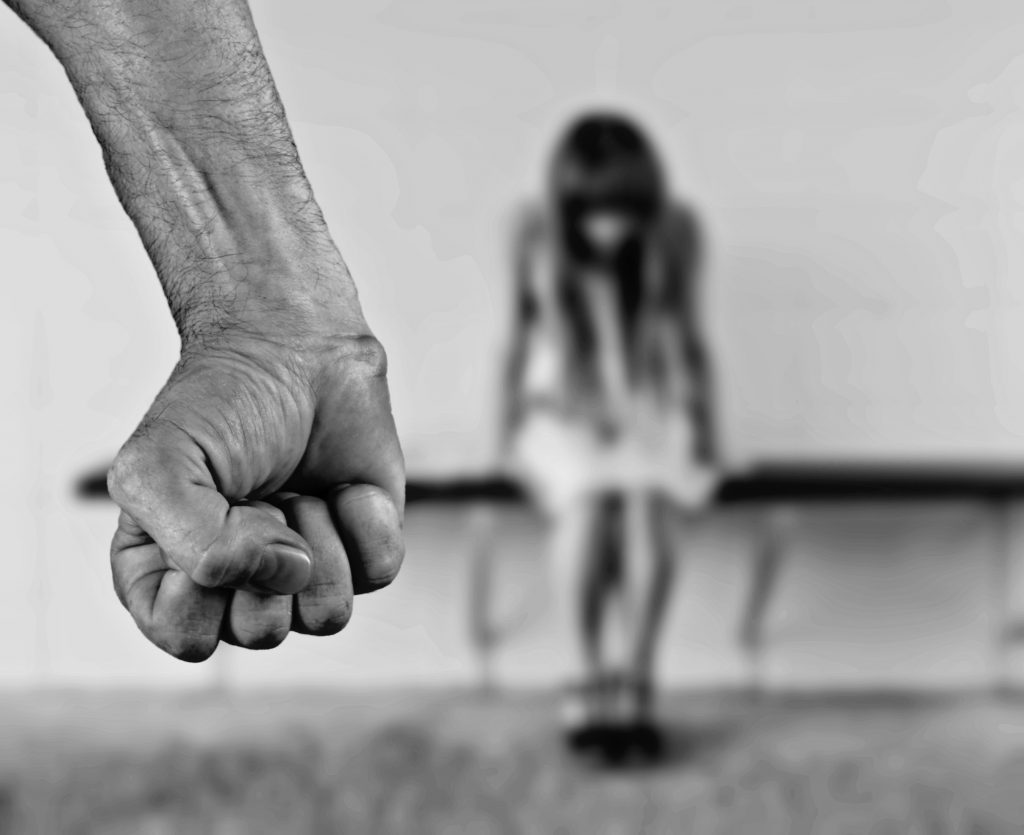 What are your thoughts on the social issues of rape and female (sexual) abuse; could a lady’s manner of dressing ever justify abuse from male perpetrators; how can this issue be addressed?
What are your thoughts on the social issues of rape and female (sexual) abuse; could a lady’s manner of dressing ever justify abuse from male perpetrators; how can this issue be addressed?
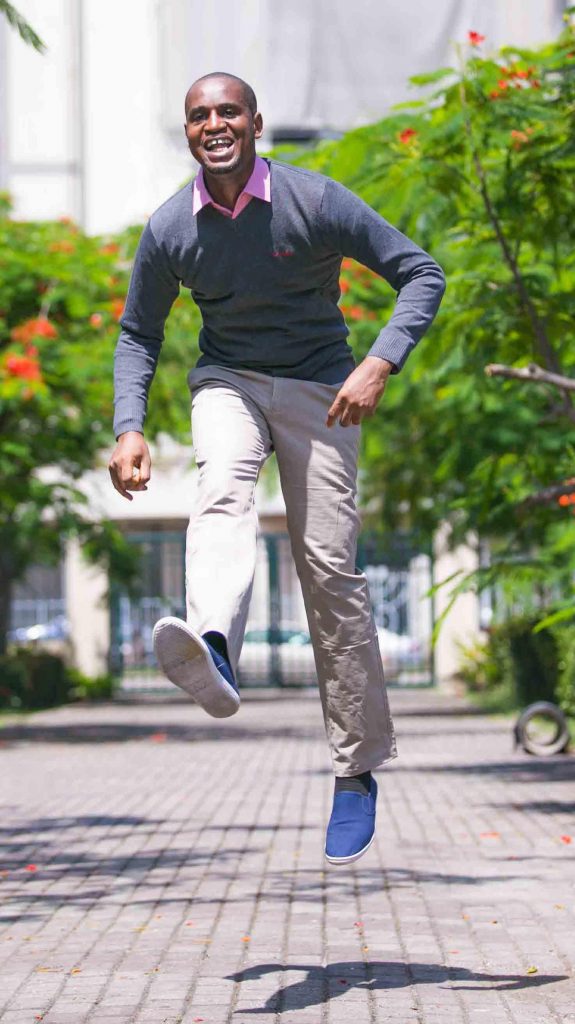 What is your favourite bible verse; which is your favourite inspirational/ motivational quote?
What is your favourite bible verse; which is your favourite inspirational/ motivational quote?
Mental health practitioner and mindset coach, Dr. Ayomide Adebayo is passionate about helping people lead the best life ever. Through his blog, www.docayomide.com, he has shared educational, informative, and inspiring articles over the last couple of years. In this in-depth interview with OnBecomingAMan.com, the recently married doctor shares his thoughts and insights on mental health for young men and addresses several societal notions about masculinity. Enjoy!
Tell us a bit about yourself – growing up, career, academics, business, marriage, etc.?
I was born in Akure (delivery taken by my late paternal grandma who was a traditional midwife), mostly grew up in Lagos, and finally left the southwest on account of national youth service which was when I met my wife (although we didn’t start dating until years later). I’m a medical doctor, mental health practitioner and now mindset coach, with my first course launching early next year.
 What informed you choice of career, and how would you describe your professional experience so far – any significant decisions, accomplishments, challenges you overcame?
What informed you choice of career, and how would you describe your professional experience so far – any significant decisions, accomplishments, challenges you overcame?I’d love to say I always knew I’d be a doctor, but the truth is, all through childhood, I never quite knew what I wanted to be. The kind of person I was and what I was interested in has always been clearer to me, so that’s what has mostly guided me. Mental health is a perfect example of something that appealed to the kind of person I was (I like challenges) and my interests (why we as humans do the things we do).
A major challenge has been choosing to focus on my interests even when they haven’t been popular. For instance, mental health wasn’t the preferred choice for most of my colleagues coming out of school, but it was what I wanted. When I went online, that wasn’t a widespread thing either; but it was what I felt drawn to. Then, figuring out how to stay with that interest in a way that’s simultaneously financially sustainable and yet entirely ethical has been an interesting journey for me.
Why should young men pay attention to their mental health and development?
Well, I like to say your mind is your most powerful resource. If you lose physical health, you can still do a lot if you have a mind that’s in shape. A physically fine person with poor mental health is in trouble; what better time to start focusing on that than in your youth, right?
In your professional experience, what are usually some of the biggest causes of mental health issues amongst young men?
Near the top of the list would be emotional insecurity. All people are insecure to some degree, men and women alike, but society doesn’t really encourage men to acknowledge their insecurity. That really makes it worse, because the worst way to deal with insecurity is to hide it: what you really want to do is acknowledge it so you can begin to work on it. Instead, what you have is lots of men who live their lives trying to hide this thing, not only from others but even from their own selves. And that’s why it can be so hard to get men to change because how do you change when every little mention of that is taken as criticism and comes across as ego-battering?
 What is the role of faith in mental health issues and how do you apply it in your work/ Are there any particular wrong notions or lines that shouldn’t be crossed when trying to apply faith in treating/managing mental health issues?
What is the role of faith in mental health issues and how do you apply it in your work/ Are there any particular wrong notions or lines that shouldn’t be crossed when trying to apply faith in treating/managing mental health issues?Faith and mental health are very very connected. For people of faith, the role of their faith is increasingly acknowledged in health, but the nature of mental health makes that role even more important.
To go into the details would require a dedicated interview on its own, but I’d simply say that it’s a good thing that we’ve moved from where faith was ignored to where it’s being actively brought into play, although this has to be done respectfully and entirely with the client’s consent.
In my work, I bring faith in strictly to the degree that the client desires. Basically, I let them lead, although I often ask if faith is important early on because, if you don’t, those who would like to discuss it don’t know they can bring it up. But after that, with some clients it never comes up again, and with others it’s a major aspect of our sessions. It’s up to the person. If your faith is important to you, we won’t pretend it’s not in the name of care.
Where those of faiths other than mine wish to have their faith involved, I discuss it as far as I’m capable (I know a bit about other faiths) and also encourage them to speak with religious leaders they respect and trust. It’s all up to them in the end, like everything else.
In such an economically challenging period as Nigeria currently finds herself, there is the propensity for a spike in stress levels and perhaps resultant mental issues such as chronic depression. How can (young) men, particularly those with huge financial burdens as breadwinners and providers, guard against breaking down mentally?
A major aspect of mental health is support systems. Just like stress is a precipitatory factor, or what most people know as triggers, we also have what we call protective factors, including the right support system/structure. Don’t stand alone. This is important because, like I mentioned earlier, men can easily tend to be lone rangers. You can have a bunch of guys you hang out with regularly and still be lonely because if you say you’re not lonely, it’s not about having people around you, it’s about being known.
You recently got married. Do you mind sharing a bit about any realities of marriage that caught you by surprise? Is marriage possibly overrated, particularly in the media and our churches?
Marriage is humbling! I don’t think anyone really prepares you for that, but it is. I read an interview by Barack Obama where he spoke of looking at his wife sometimes and feeling very intimate to her, very close, and then other times, she’s very mysterious, like, “who’s this woman and why am I married to her?” I totally get that. I love my wife and I wouldn’t be married to anyone else, but then there are moments when it’s like, wow, she’s so different and so strange, you know?
But that’s part of the joy of it, that mystery. Psychologically, you can’t have desire and romance without a sense of mystery, which is why many people cheat: they’re looking for that mystery, that desire. So I’m grateful for it and I lean into it. A part of me knows I’ll never fully understand the complexity of this amazing woman and that’s okay — it’s part of the journey.
Is marriage overrated? Yes, and no. Yes because everyone makes it like it’s this thing that you’re not a full human being until you do it, and that’s simply not true. But it’s also not overrated because, marriage itself, the real thing and not the sentimental, Hollywood-driven idea of it that we’re sold, is almost impossible to overrate. Think about it: a decision to share the rest of your life with someone you can only actually know AFTER you make the decision. How do you overrate that? It’s either the most insane idea ever, or an utterly brilliant invention.
 What are your thoughts about the roles of a man as a Prophet, a Priest, and a King over his family?
What are your thoughts about the roles of a man as a Prophet, a Priest, and a King over his family?There’s a part of me that is a little skeptical of those terms, not because I don’t believe them — I do — but because I feel like they have come to mean rather different how they were originally intended.
For instance, all three roles are roles of servanthood, right? They all serve the people. They’re not offices that existed for the aggrandizement of the holders, but for the benefit of the people. In a sense, you could say a prophet, priest or king belonged to his people. And this is further captured in the New Testament idea that the greatest is the one who serves.
Fast forward to today and you see that we mostly have it all wrong: we think of those offices more in terms of the authority we get by having them instead of the responsibilities they entail to those we are to serve by them. So I wouldn’t say he is those things over his family, but for his family, yeah?
Here’s my basic idea of the roles: the priest represents the people before God, the king represents them before the world, and the prophet connected God and the people. So while the priest sees to it that the people are in good standing with God, the king works so the people are in good standing with the world, and the prophet has the job of ensuring the people are connected to what God is saying at each point. Substitute “the people” with your family and you can see your job.
 What are your thoughts on the social issues of rape and female (sexual) abuse; could a lady’s manner of dressing ever justify abuse from male perpetrators; how can this issue be addressed?
What are your thoughts on the social issues of rape and female (sexual) abuse; could a lady’s manner of dressing ever justify abuse from male perpetrators; how can this issue be addressed?To that question, no, a thousand times no. It’s not only unfair to blame females who have been abused (especially when they already tend to be wrongly blaming themselves), it’s statistically wrong to say it’s from their dressing or behaviour.
Most abuse is by people who are trusted, and they often simply pick on those they feel able to dominate. If we want to seriously address the issue, then we need to face up to the fact that we as a society are complicit by the leniency which with we treat those who have abused others. We, as men, need to face up to the fact that we don’t take it seriously because many men have abused others in their past. But that also means coming to terms with the reality that abuse is perpetrated, not by monsters, but very often by regular people whose sexual tendencies are not held back due not only to an inadequacy of consequences but also the lack of awareness, lack of sexual education, as well as exposure to sexually charged environments.
Please share with us about key projects you are passionate about and have already started to implement within the last 6 – 12 months.
One of my major recent and ongoing projects is my online community, Maximize Your LIFE Facebook group, launched about 8 months ago, but sort of inactive until about 3 months ago — after my wedding! I engage members there on a daily basis with some of my best content; that’s kind of an intersection of psychology and personal development.
My other major ongoing project is building out online courses. I recently did a Facebook challenge for people in frustrated relationships that was very successful, and I’ll be following that up in the new year with a course on healing from emotional wounds so you can start the year whole.
 What is your favourite bible verse; which is your favourite inspirational/ motivational quote?
What is your favourite bible verse; which is your favourite inspirational/ motivational quote?That would be Galatians 6:9. The ESV (my main version) renders it: “And let us not grow weary of doing good, for in due season we will reap, if we do not give up.” I love it because it basically keeps me going. It tells me that there is always going to be a reason to stop, but a due season will always come. And my best part: it doesn’t tell you what the due season is, because you don’t actually know when it is until it happens! So you keep going and keep trusting. It’s a verse I often come back to whenever I feel stuck.
Favourite quote is hard because there are so many I love, but here are two from my favourite author, CS Lewis:
“I believe in Christianity as I believe that the sun has risen: not only because I see it, but because by it I see everything else.”
“To love at all is to be vulnerable. Love anything, and your heart will certainly be wrung and possibly be broken. If you want to make sure of keeping it intact, you must give your heart to no one, not even to an animal. Wrap it carefully round with hobbies and little luxuries; avoid all entanglements; lock it up safe in the casket or coffin of your selfishness. But in that casket — safe, dark, motionless, airless — it will change. It will not be broken; it will become unbreakable, impenetrable, irredeemable.”
What have been your biggest (2-3) accomplishments in 2016 and why?
This has been a consolidating year for me, so in terms of accomplishments, I think I’d say getting my online community up, running and active. That’s stretched me quite a bit in terms of the level of daily content I put out and my own ideas of how good it all still has to be. The other thing I would say, funny as it might sound, is getting married! Okay, I’m half kidding; but only half. Half because getting married involved a few other far-reaching decisions (that reached well into other aspects of my life) all of which really stretched me rather more than I foresaw say, a couple years ago. So the major accomplishment for me there is that I stepped up to the plate and I’m seeing the growth across my life as a whole.
What particular thing would you like to change about you/ how you do things in 2017?
Great question, because there really is always something to change, as we grow. For me, in the next one year, that’s basically regrowing my reading habit. I have always been a voracious reader, but lately, I’ve read far fewer books than usual. On one hand, that’s partly because I’ve been doing a lot more reading online, as well as taking online courses and such, so I’m still learning a lot every day. However, there’s a value to long-form reading (by which I mean books, especially) that I don’t think you find easily otherwise, so that’s something I want to do more of than I’ve been, and more so because I’m a thinker and learner, and that’s how I feed my mind. So yeah, that, for sure.
What book(s) are you currently reading?
I’m always reading more than one book at a time, it’s crazy! Right now, I’m reading Us: A User’s Guide by Dan Tocchini. It’s a rather radical book on marriage (so yes, I’m definitely still learning). I’m also reading The Skeptical Believer: Telling Stories to Your Inner Atheist, by Daniel Taylor and Thinking, Fast and Slow by Daniel Kahnemann. (I literally just noticed all my current authors are Dans!)
Any other thing you would like to talk about – projects, projections into the new year, advice to young men?
I’ll simply close with this, to all men (and it’s something I say to myself all the time): Keep reaching, keep stretching, keep doing the hard things. Don’t hold back, don’t play safe. Live the adventure that life is, and let it grow and mature you. I think that’s something we all need to hear again and again, and it’s something the best people in your life don’t let you forget.
Follow Dr. Ayomide Adebayo on Twitter (@DocAyomide); check out his website, www.DocAyomide.com and join his Facebook group, Max Your Life.
